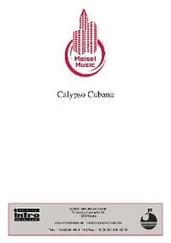Harry Frank - Alas, Babylon
Здесь есть возможность читать онлайн «Harry Frank - Alas, Babylon» весь текст электронной книги совершенно бесплатно (целиком полную версию без сокращений). В некоторых случаях можно слушать аудио, скачать через торрент в формате fb2 и присутствует краткое содержание. Город: New York, Год выпуска: 2005, ISBN: 2005, Издательство: HarperCollins Publishers, Жанр: sf_postapocalyptic, на английском языке. Описание произведения, (предисловие) а так же отзывы посетителей доступны на портале библиотеки ЛибКат.
- Название:Alas, Babylon
- Автор:
- Издательство:HarperCollins Publishers
- Жанр:
- Год:2005
- Город:New York
- ISBN:0060741872
- Рейтинг книги:5 / 5. Голосов: 1
-
Избранное:Добавить в избранное
- Отзывы:
-
Ваша оценка:
- 100
- 1
- 2
- 3
- 4
- 5
Alas, Babylon: краткое содержание, описание и аннотация
Предлагаем к чтению аннотацию, описание, краткое содержание или предисловие (зависит от того, что написал сам автор книги «Alas, Babylon»). Если вы не нашли необходимую информацию о книге — напишите в комментариях, мы постараемся отыскать её.
Alas, Babylon — читать онлайн бесплатно полную книгу (весь текст) целиком
Ниже представлен текст книги, разбитый по страницам. Система сохранения места последней прочитанной страницы, позволяет с удобством читать онлайн бесплатно книгу «Alas, Babylon», без необходимости каждый раз заново искать на чём Вы остановились. Поставьте закладку, и сможете в любой момент перейти на страницу, на которой закончили чтение.
Интервал:
Закладка:
In the garage Randy found two empty five-gallon gasoline cans. He put them in the car trunk and drove to town.
Jerry Kling’s station was still open, but Jerry had already turned off his neon sign and was checking the cash register. Jerry filled the tank, and the two extra cans, and as an afterthought Randy asked for a gallon of kerosene and five extra quarts of oil. Driving back on River Road, Randy slowed when he reached the McGoverns’. All the lights were on in the McGoverns’ house. He turned into the driveway. It was ten-thirty. It was not necessary that he leave for the Orlando airport until two A.M.
It was near dawn in the Eastern Mediterranean when Saratoga , working up speed in narrowing waters between Cyprus and Lebanon, catapulted four F-11-F Tigers, the fastest fighters in its complement. By then, the reconnaissance jet that had shadowed Task Group 6.7 through the darkness hours had vanished from the radar screens. The Admiral’s staff was convinced another would take its place, as on the previous morning, but this day the snooper would receive a surprise. Task Group 6.7’s primary mission was to take station in Iskenderun Gulf and give heart to the Turks, who were under heavy political and propaganda pressure. The force’s security would be endangered if its perilously tight formation, in this confined area, was observed.
Quite often the flood of history is undammed or diverted by the character and actions of one man. In this case the man was not an official in Washington, or the Admiral commanding Task Group 6.7, or even the Captain or Air Group Commander of Saratoga . The man was Ensign James Cobb, nicknamed Peewee, the youngest and smallest pilot in Fighter Squadron 44.
Ensign Cobb was assigned Combat Air Patrol duty on this Saturday morning simply because it was his turn. He was scarcely five feet, six inches tall, weighed 124, and looked younger than his twenty-three years. Under a flat-top haircut, his red head appeared knobby and outsized. His face was pinched, and mottled with freckles. In the presence of girls, he was shy to the point of panic. In the wonderful ports of Naples, Nice, and Istanbul, he distinguished himself as the only pilot in Fighting Forty-Four who never found reason to request a night’s liberty ashore.
When he climbed into the cockpit of his aircraft, Peewee Cobb’s whole character changed. The instant his hands and feet were on the controls, he became as large and fast as his supersonic fighter, and as powerful as its armament. As compensation for outer physical deficiencies, he was gifted with superb reactions and eyesight. He was rated superior in rocketry and gunnery. He got a fierce thrill in pushing his F-11-F through the mach, and to the limit of its capability. He could outfly anybody in the squadron, including the Lieutenant Commander who led it, and who had once said, “Peewee may be a mouse aboard ship, but he’s a tiger in a Tiger. If I sent him up with orders to shoot down the moon, he’d try.”
Now, for the first time, Peewee Cobb was flying CAP under wartime conditions, in a fighter armed with live rockets and with orders to intercept and destroy a snooper if it appeared. Climbing steadily in the darkness, he prayed that if the bogy came back, it would attempt to penetrate his sector. If it did, nobody would laugh at his size, his squeaky voice, his face, or his ineffectual awkwardness with women, ever again.
Peewee Cobb had been given a code name, Sunflower Four, and instructions to orbit over an area of sea off Haifa, astern of Task Group 6.7. If the hostile reconnaissance jet came in from a base in Egypt or Albania, he would be in a position to intercept. His fighter was armed with Sidewinders, ingenious, single minded rockets, heat-seekers. A Sidewinder’s nose was sensitive to infra-red rays from any heat source. Peewee had fired two in practice. They not only had destroyed the targets, but had unerringly vanished up the tail pipes of the drones.
At thirty thousand feet, Peewee judged he was on station and called for a radar fix. The missile-cruiser Canberra , closest ship in the formation, confirmed his position. As he circled, the sky in the southeast grew light. When the sun touched his wingtips, the sea was still dark below. Then gradually, the shape and color of sea and earth became plain. He felt entirely alone and apart from this transformation, as if he watched from a separate planet. He checked his map. Far to the east he picked out Mount Carmel, and a river, and beyond were the hills of Megiddo, also called Armageddon. He continued to orbit.
His earphones crackled and he acknowledged Saratoga . The fighter controller’s voice said, “Sunflower Four, we have a bogy. He is at angels twenty-five, his speed five hundred knots. Your intercept course is thirty degrees. Go get him!”
So the snooper was already north of him and racing up the coast, hoping to hang on to the flank of the task group and observe it by radar from a position close to friendly Syrian territory. Peewee took his heading and pushed his throttle up to ninety-nine percent power. He slid through the mach with a slight, thrilling tremor. Every fifteen or twenty seconds he made minute alterations in course in response to directions from Saratoga , which was holding both planes on its screens.
Then he saw it, flicker of sun on metal, diving at great speed. He pushed the Tiger’s nose over and followed, reporting, “I am closing target.” He touched the switch that armed his rockets, and another calling for manual fire, singly.
The chase had carried him down to nine thousand feet and the bogy was still losing altitude. It was a two-engined jet, an IL-33, Peewee believed, and remarkably fast at this low level. There was no doubt the bogy knew he was on its tail, for reconnaissance aircraft would be well equipped with radar. His speed held steady at mach 1.5, but his rate of closure slowed.
Far ahead Peewee saw the Syrian port of Latakia, reputedly built into an important Red submarine base. Within a few seconds he would be within Syrian territorial waters, and a few more would carry him over the port itself.
At this point Peewee should have dropped the chase, for they had been strictly warned, in the briefing, against violating anyone’s borders. He hung on. In another five seconds
The bogy finked violently to the right, heading for the port and its anti-aircraft and rocket batteries and perhaps the sanctuary of an airfield in the brown hills and dunes beyond.
Peewee turned the F-11-F inside him, instantly shortening the range.
He pushed the firing button.
The Sidewinder, leaving a thin pencil mark of smoke, rushed out ahead.
For an instant the Sidewinder seemed to be following the flight of the bogy beautifully, and Peewee waited for it to merge into the tail pipe of one of the jet engines. Then the Sidewinder seemed to waver in its course.
Peewee believed, although he could not be certain, that the bogy had cut its engines and was in a steep glide. Following the Sidewinder, Peewee lost sight of the bogy.
The Sidewinder darted downward, toward the dock area of Latakia.
It seemed to be chasing a train. That crazy rocket, Peewee thought.
There was an orange flash and an enormous ball of brown smoke and black bits of debris rushing up to meet him. Peewee kicked his rudder hard and climbed away from it, compressed within his G-suit and momentarily losing his vision. Then the shock wave kicked him in the rear and he was out over the Mediterranean again. He was asking for a vector back to his ship when another flash reflected on his instrument panel. He banked to look back, and saw a black cloud, red flames at its base, rising from Latakia.
Fifteen minutes later Ensign Cobb, freckles standing out on his white face like painted splotches, was standing in Admiral’s Country of Saratoga trying to explain what had happened.
Читать дальшеИнтервал:
Закладка:
Похожие книги на «Alas, Babylon»
Представляем Вашему вниманию похожие книги на «Alas, Babylon» списком для выбора. Мы отобрали схожую по названию и смыслу литературу в надежде предоставить читателям больше вариантов отыскать новые, интересные, ещё непрочитанные произведения.
Обсуждение, отзывы о книге «Alas, Babylon» и просто собственные мнения читателей. Оставьте ваши комментарии, напишите, что Вы думаете о произведении, его смысле или главных героях. Укажите что конкретно понравилось, а что нет, и почему Вы так считаете.












